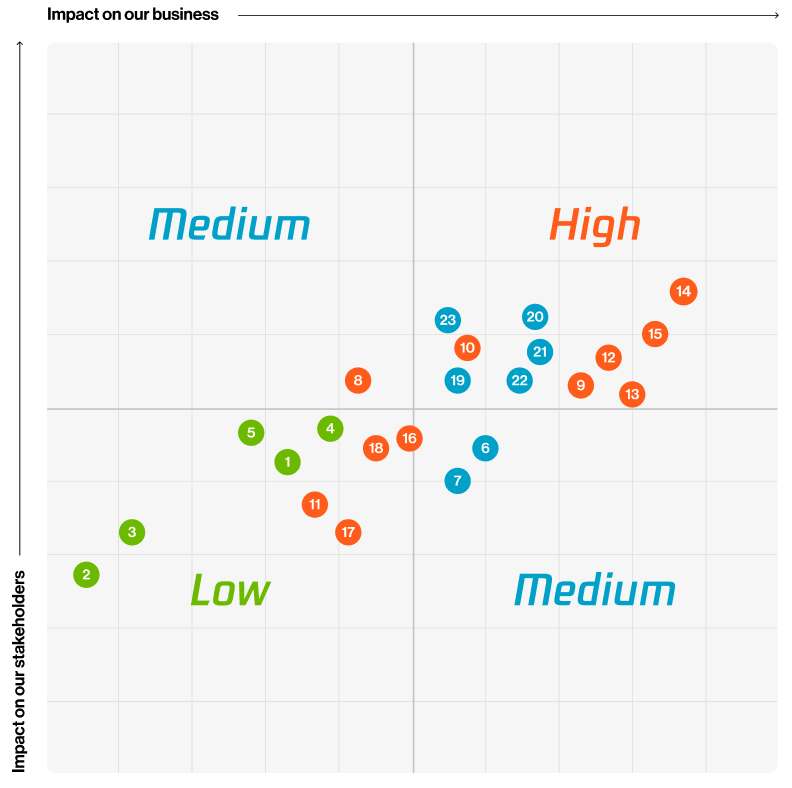We regularly engage with our stakeholders to learn about their expectations and feedback on our ESG performance. Our stakeholders include users, employees, government and regulatory bodies, investors, business partners, the media and public, and non-governmental organisations (NGOs). Our communication channels include but are not limited to regular meetings, investor and press conferences, satisfaction surveys and social media platforms.
Assessment on the materiality of ESG topics
To identify and understand various ESG topics that are of high priority to Tencent, we have engaged an external professional agency to conduct a materiality assessment. The assessment process is as follows:
- Identify a list of potential ESG material topics by taking into consideration:
- common issues raised by internal and external stakeholders, and
- topics highlighted in recognised reporting frameworks, including the ESG Reporting Guide, the Task Force on Climate-Related Financial Disclosures (TCFD), the Global Reporting Initiative (GRI) standards, and the Sustainability Accounting Standards Board (SASB) standards.
- Identify key concerns via interviews and online surveys across stakeholder groups, including the Board members, senior executives, employees, customers (users and business partners), suppliers, investors, governments and regulators, academics, media and NGOs.
- Prioritise relevant material ESG topics through materiality mapping.
The material topics which fell into the upper right quadrant of the matrix were defined as highly material to the Company. These material ESG topics include Data Privacy and Cyber Security, Protection of Minors, Responsibility of Content, Social Impact of Products & Services, Employee Health and Safety, Intellectual Property, Anti-corruption, Corporate Governance, Labour Standards, Active Stakeholder Engagement, and Anti-trust.

- 1Climate change & greenhouse gas emissions
- 2Waste management
- 3Water management
- 4Energy use
- 5Environmental impact of products & services
- Employee rights & benefits
- Employee career development
- 8Diversity and equal opportunity
- 9Employee health and safety
- 10Labour standards
- 11Supply chain management
- 12Social impact of products & services
- Responsibility of content
- 14Data privacy and cyber security
- 15Protection of minors
- Digital inclusion and digital
- 17Literacy
- Community investment
- 19Support common prosperity
- 20Anti-trust
- 21Intellectual property
- 22Anti-corruption corporate governance
- 23Active stakeholder engagement
- Environmental topics
- Social topics
- Governance topics

